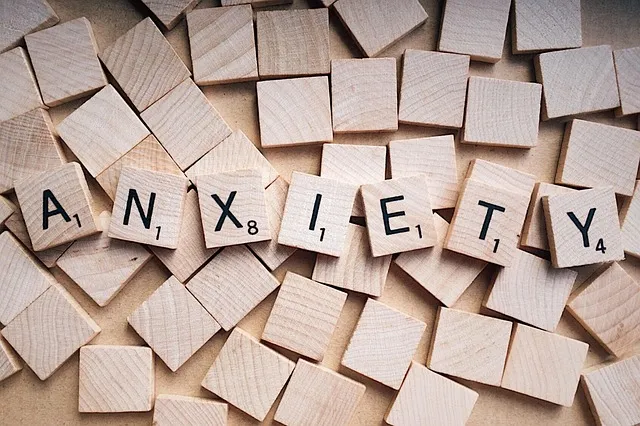Lakewood's Kaiser provides comprehensive mental health services tailored to address chronic stress, a growing concern in today's fast-paced world. Their programs focus on awareness campaigns, compassion cultivation, and coping technique adoption to empower individuals in managing their mental well-being. Through therapy sessions, workshops, and community outreach, these services build resilience and promote emotional well-being, helping folks thrive despite stressors like work pressure, financial issues, and life changes. Effective techniques include relaxation exercises, mindfulness practices, meditation, and journaling for stress management and overall mental health improvement.
Stress management is a vital skill, especially in today’s fast-paced world. This comprehensive guide explores effective techniques to navigate and overcome stress. We delve into the science behind stress, its causes, and far-reaching effects on both mind and body. Discover the critical role of mental health services, offering professional support for stress relief. Learn practical steps from relaxation exercises to mindfulness practices, empowering you to build resilience and effectively manage stress long-term, just like Lakewood does with Kaiser’s mental health services.
- Understanding Stress: Causes and Effects
- The Role of Mental Health Services in Stress Management
- Teaching Relaxation Techniques: A Step-by-Step Guide
- Incorporating Mindfulness and Meditation in Daily Routines
- Building Resilience: Practical Strategies for Long-Term Stress Management
Understanding Stress: Causes and Effects

Stress is a natural response to various life situations, but when it becomes chronic, it can significantly impact overall health and well-being. Understanding its causes is essential in combating its detrimental effects. At Lakewood, Kaiser offers mental health services that cater to this growing need for stress management support.
Common stressors include work pressures, financial worries, relationship issues, and major life changes. These triggers can lead to both physical and psychological symptoms such as anxiety, insomnia, irritability, and even cardiovascular problems. Public awareness campaigns development and compassion cultivation practices have been shown to be effective in managing these challenges. By recognizing personal stress triggers and implementing coping strategies, individuals can take control of their mental health and overall quality of life.
The Role of Mental Health Services in Stress Management

Mental health services play a pivotal role in stress management, especially in today’s fast-paced world where burnout is a significant concern for many professionals. Organizations like Kaiser, notably present in Lakewood, offer specialized mental health support to address this growing issue. These services are designed to help individuals cope with stress and develop effective coping mechanisms, thereby enhancing their overall well-being.
For instance, Kaiser’s programs might include therapy sessions, workshops focused on risk management planning for mental health professionals, and advocacy initiatives promoting mental health policy analysis. By providing these resources, mental health organizations actively contribute to burnout prevention, a critical aspect of maintaining a healthy workforce. This holistic approach ensures that professionals not only manage their stress effectively but also thrive in their careers while advocating for improved mental health policies on a larger scale.
Teaching Relaxation Techniques: A Step-by-Step Guide

Teaching relaxation techniques can be a powerful tool to empower individuals in managing their stress levels. Here’s a step-by-step guide tailored for educators or facilitators looking to integrate this practice into their teachings, potentially offered by organizations like Kaiser in Lakewood, with an emphasis on mental health services and public awareness campaigns development.
Start by introducing the concept of relaxation as a vital self-care routine development for better mental health. Explain that these techniques are simple yet effective tools to help individuals regulate their mood management and reduce stress responses. Engage participants with a brief meditation or deep breathing exercise, demonstrating the practice. Next, break down different relaxation strategies like progressive muscle relaxation, mindfulness exercises, or yoga poses. Provide clear instructions and visual aids for each step, ensuring everyone understands the benefits of these practices in daily life. Encourage students to experiment with these techniques, offering personalized guidance based on individual needs and preferences, especially those who may be unfamiliar with self-care routines.
Incorporating Mindfulness and Meditation in Daily Routines

Incorporating mindfulness and meditation into daily routines has emerged as a powerful tool for stress management, especially in today’s fast-paced world. Lakewood does Kaiser offer mental health services, providing accessible resources for individuals seeking to enhance their mental wellness. These practices allow individuals to cultivate present-moment awareness, thereby reducing the impact of stressful thoughts and emotions. Research supports that regular meditation can lower cortisol levels—the hormone associated with stress—and improve overall mood and well-being.
A simple yet effective approach is to start with short mindfulness exercises, such as focusing on the breath or scanning the body for tension. Incorporating these practices into morning routines, during lunch breaks, or before bedtime can help create a sense of calm and prevent burnout. Additionally, mental wellness journaling exercises guidance can reinforce mindfulness by encouraging individuals to reflect on their thoughts and feelings without judgment. This not only boosts confidence but also provides a space to track progress in managing stress over time.
Building Resilience: Practical Strategies for Long-Term Stress Management

Building resilience is a key component of long-term stress management, and Lakewood’s Kaiser offers valuable mental health services to support this journey. By integrating practical strategies into daily routines, individuals can enhance their ability to navigate challenging situations and maintain emotional well-being. One effective approach is through Community Outreach Program Implementation, where educational initiatives and support groups foster a sense of connection and shared resilience.
Emotional Well-being Promotion Techniques, such as Self-Awareness Exercises, play a pivotal role in stress management. Encouraging mindfulness and introspection allows individuals to recognize triggers and develop healthy coping mechanisms. These exercises can be tailored to suit various lifestyles and preferences, making it accessible for everyone to take charge of their mental health. Lakewood’s Kaiser provides resources and guidance, ensuring individuals have the tools they need to thrive and build a robust foundation for managing stress effectively over time.
Stress management is a valuable skill that can greatly enhance one’s quality of life. As Lakewood residents, understanding stress and its causes is the first step towards effective management. The good news is that resources like Kaiser’s mental health services in the area offer comprehensive support. By combining relaxation techniques, mindfulness practices, and building resilience, individuals can navigate life’s challenges with greater ease. Implementing these strategies, as outlined in this article, empowers folks to take control of their well-being and live happier, healthier lives in vibrant Lakewood.






